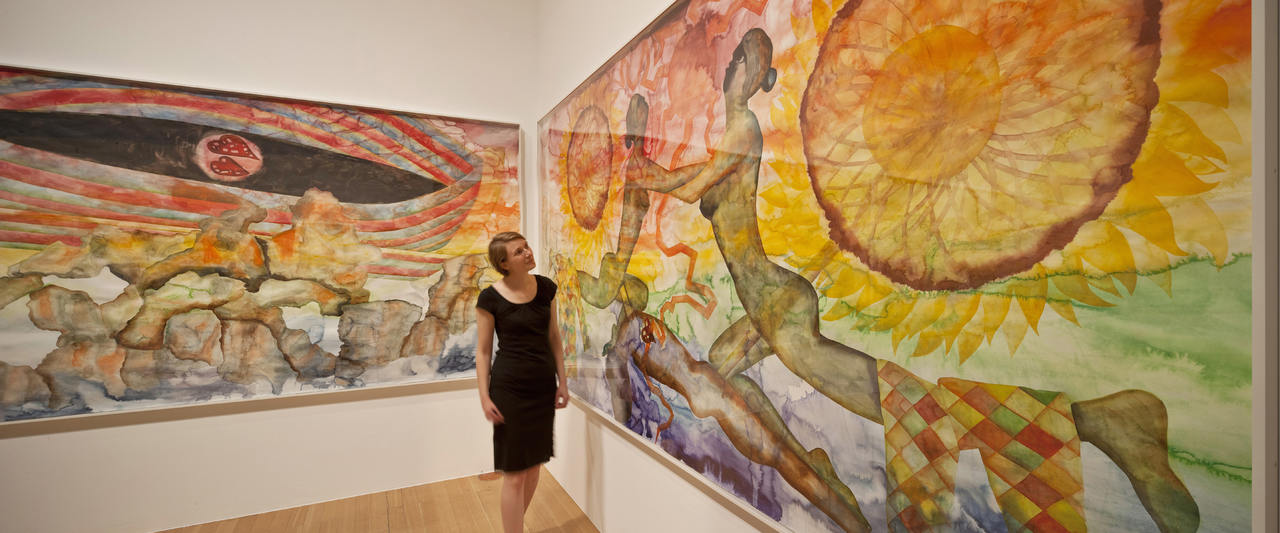
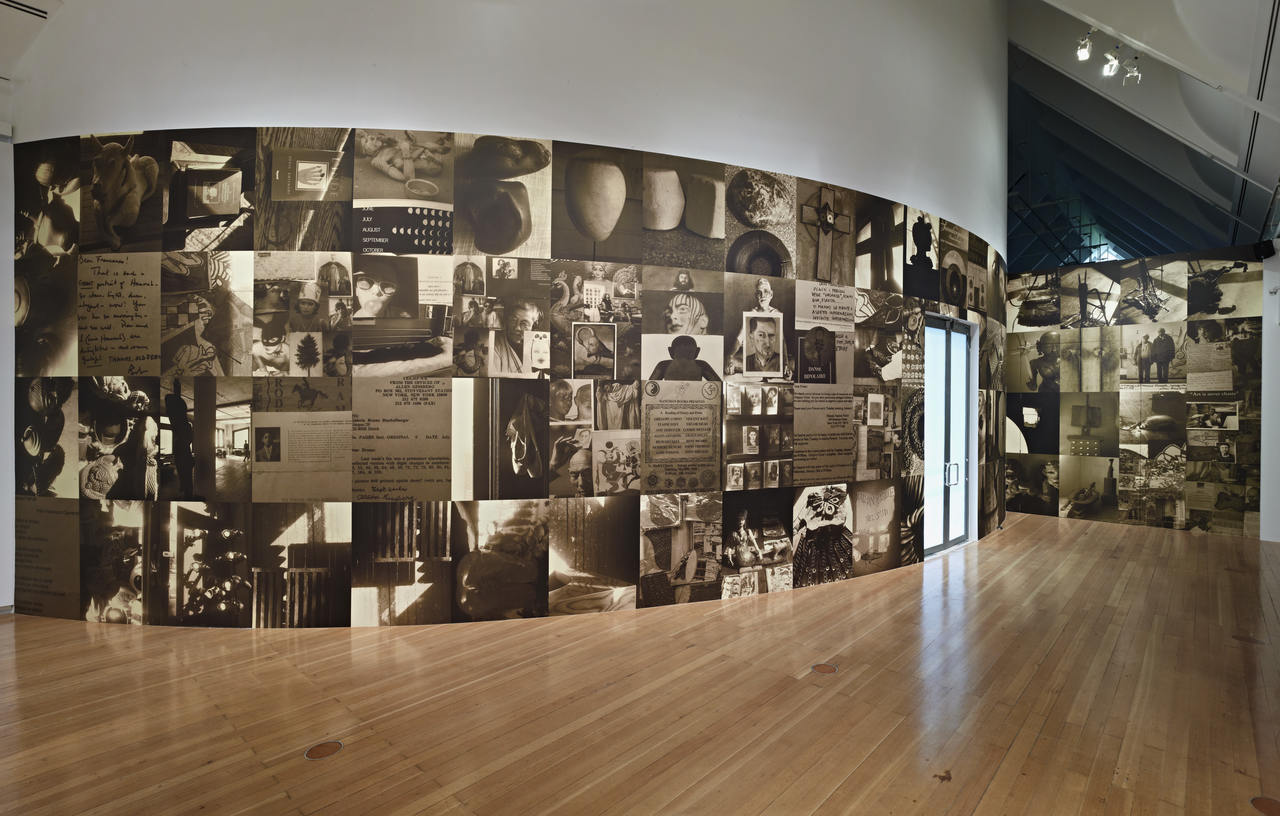
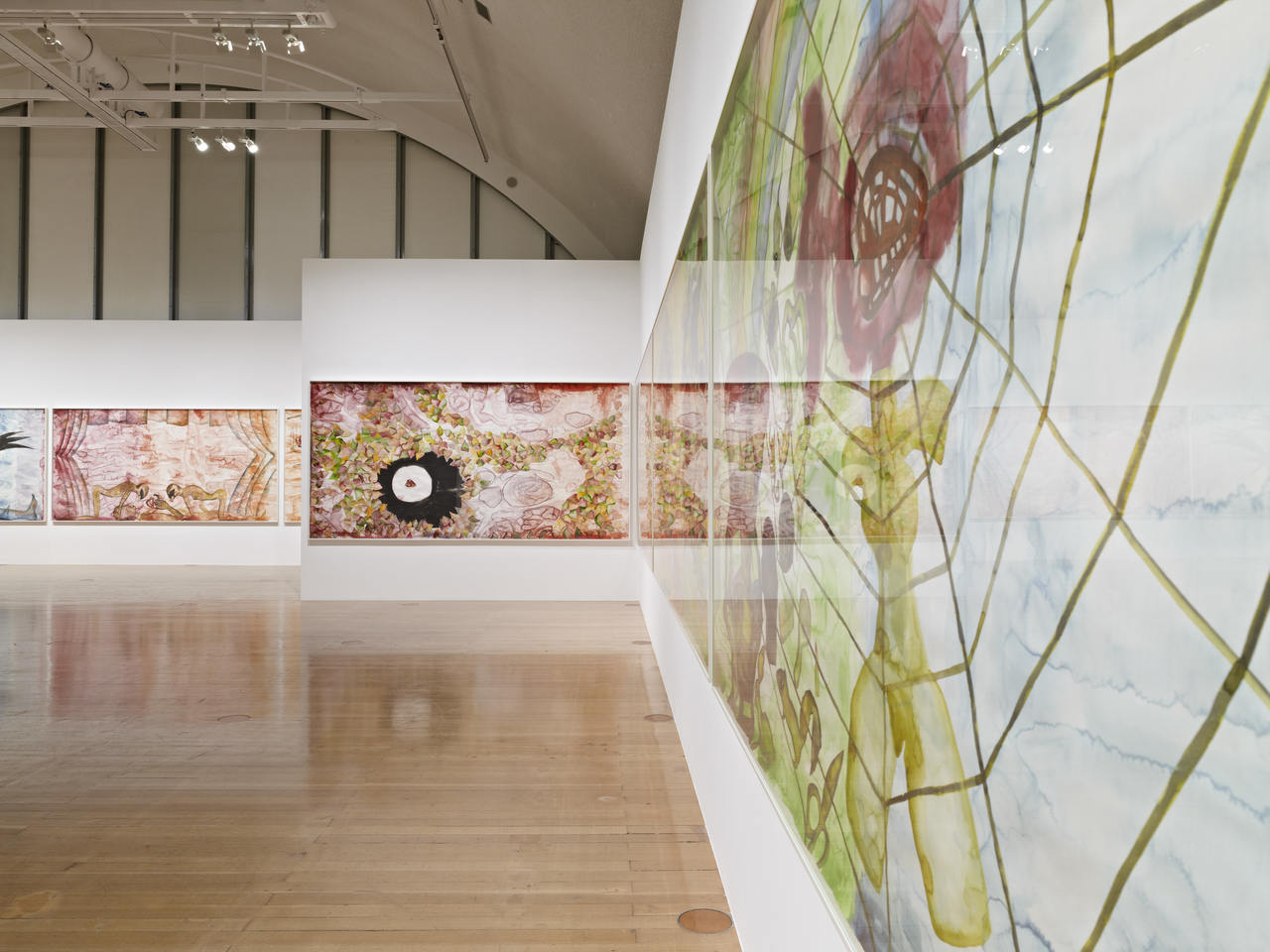
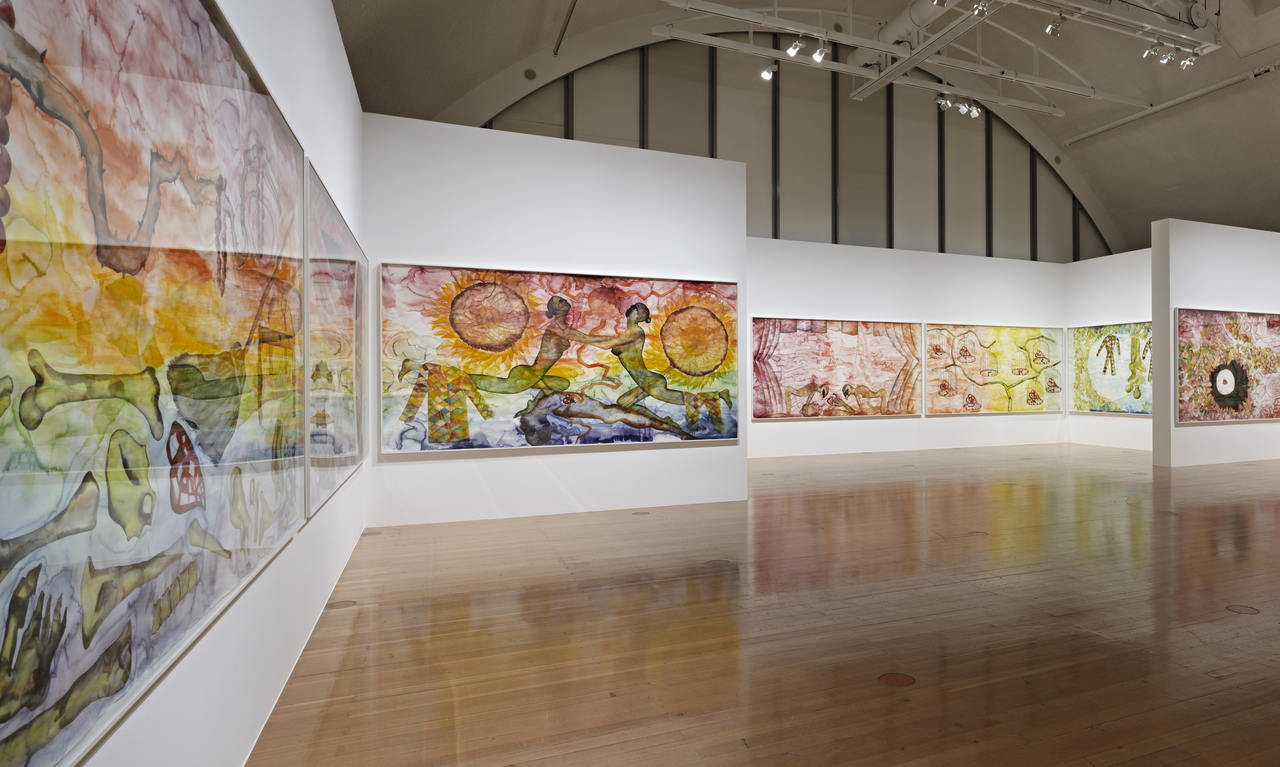
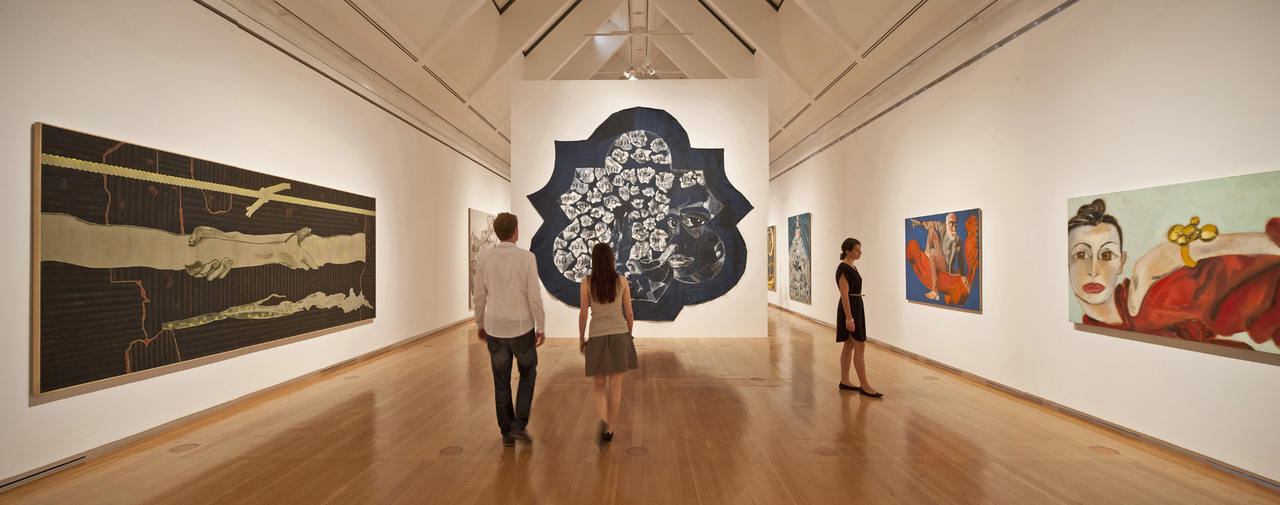
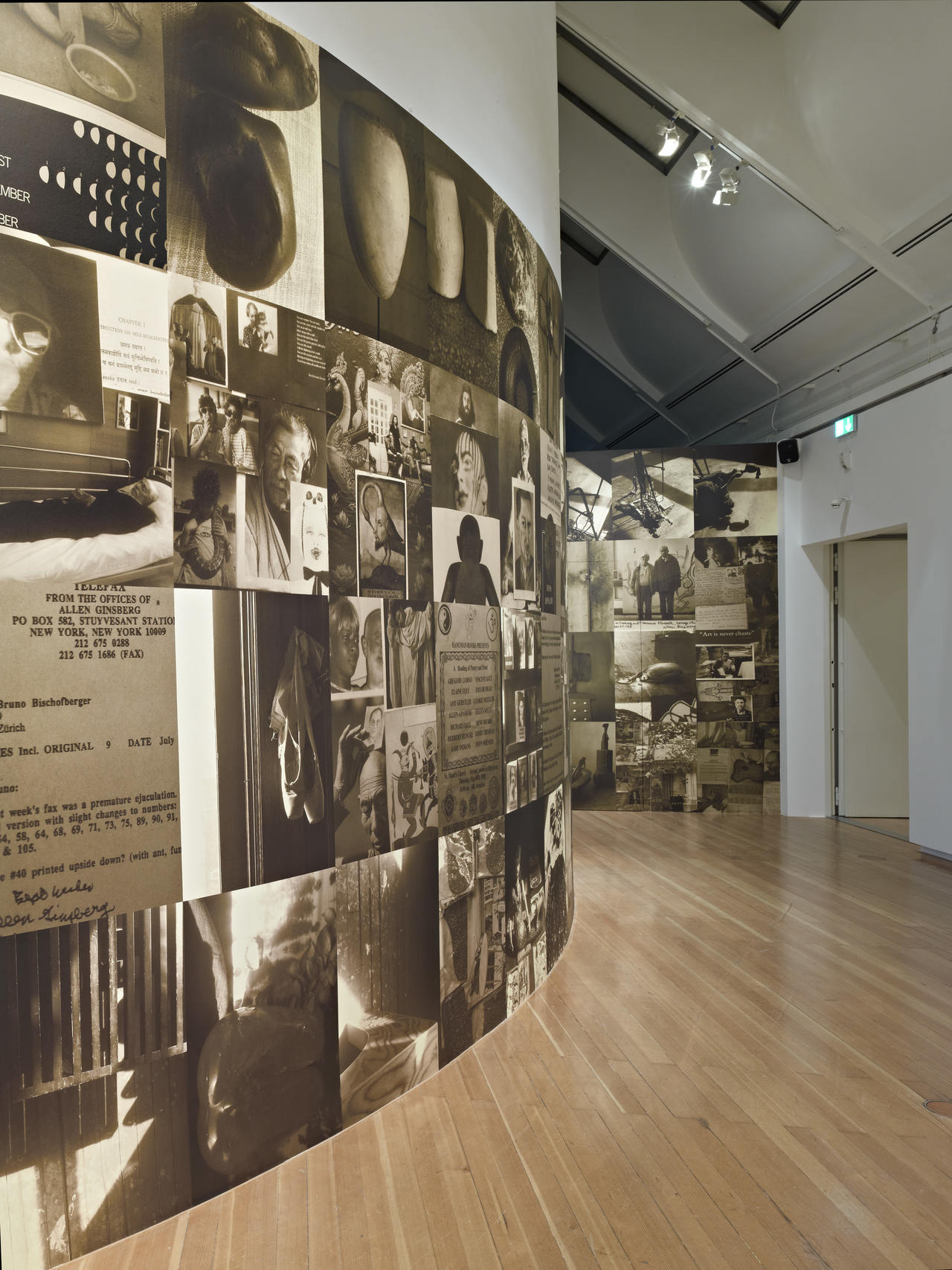
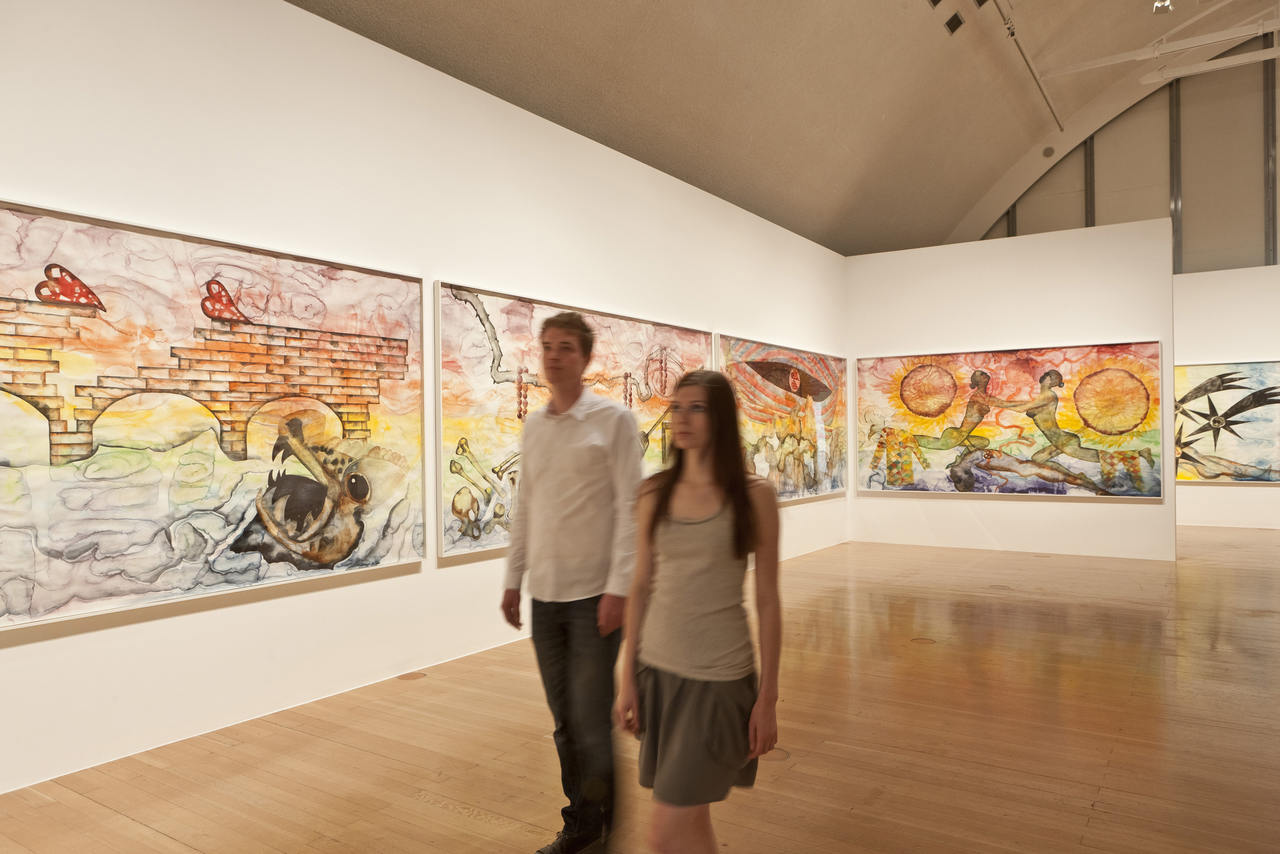
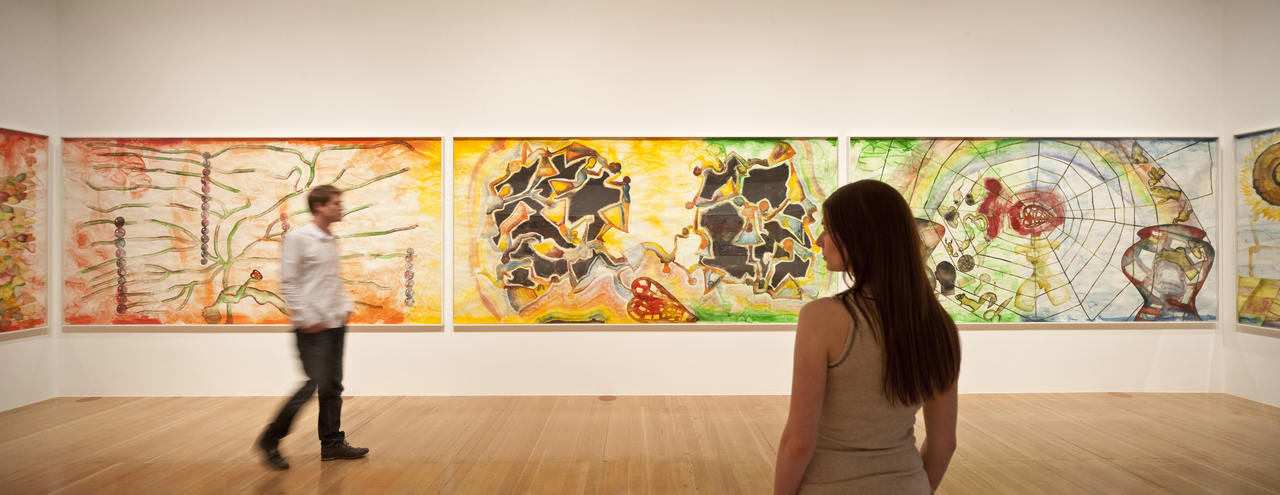
FRANCESCO CLEMENTE. PALIMPSEST
Francesco Clemente, who was born in Naples in 1952, has pioneered an extraordinary pictorial language that draws on a variety of timeless symbols, myths, cultures, and philosophies. Frequently charged with eroticism, his oeuvre also has a profound religious quality. The variety of mediums which he employs and the subject matter of his work is deeply informed by Clemente's nomadic artistic life. Since the 1970s he has continually travelled between Italy and India adding New York City to his preferred places of residency since 1980.
This exhibition at the Schirn Kunsthalle is the first comprehensive showing of his paintings and drawings in Germany in more than a quarter century. It brings together more than forty works made between 1978 and 2011. Taking as its starting point Clemente's early works on paper, the show also includes not just large format paintings but also more recent, spectacular monumental watercolors. The exhibition, which has been conceptualized in close cooperation with the artist, brings to light for the first time the close resemblance of Clemente's aesthetic to the manner in which references are actualized in a palimpsest: effacement, partial erasure, and superimposition of writing surfaces. In so doing it reveals a concern at the centre of his oeuvre: Clemente's conviction in his role as an artist as a kind of universal witness of consciousness.
CATALOG
Francesco Clemente has pioneered an extraordinary pictorial language that draws on a variety of timeless symbols, myths, cultures, and philosophies. The variety of mediums which he employs and the subject matter of his work is deeply informed by Clemente's nomadic artistic life. The catalogue brings to light for the first time the close resemblance of Clemente's aesthetic to the manner in which references are actualized in a palimpsest: effacement, partial erasure, and superimposition of writing surfaces. In so doing it reveals a concern at the centre of his oeuvre: Clemente's conviction in his role as an artist as a kind of universal witness of consciousness.
Taking as its starting point Clemente's early works on paper, the catalogue includes not just large format paintings but also more recent, spectacular monumental watercolors.